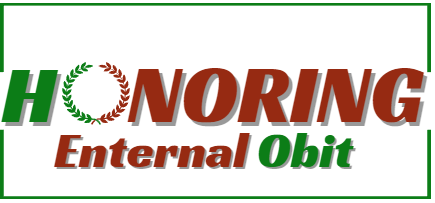Phillip Morris Obituary, Sadly Died At Spire St Anthony’s
Phillip Morris Obituary, Death Cause – A grieving widow blamed her husband’s death on a “catalogue of errors” made by staff at a private hospital following a damning inquest. Phillip Morris, 48, died at Spire St Anthony’s in Surrey in December 2021 just days after he underwent a £12,000 gastric sleeve operation. The father-of-one, who had always suffered with his weight, had been told the procedure would “change his life”, but instead, he never left the hospital. An inquest into Mr Morris’ death ruled today [FRI] that he ‘would have survived’ had the equipment at Spire St Anthony’s been working properly.
A Wife’s Heartfelt Testimony
His wife Dana said: “While in the care of Spire Health, we feel that our Phil was treated like a commodity on a conveyor belt, without the individual care he so clearly needed. He entered private healthcare firm Spire’s St Anthony’s hospital for the operation, trusting himself to their care.”
Tragic Errors Uncovered
“However, due to a catalogue of fundamental errors by those working in the Spire, he would never leave the hospital. There was a failure to properly monitor Phil post-surgery, including staff failing to take his bloods as specifically ordered by his surgeon.”
A Series of Failures
“It was a critical error that began a spiral of events, which we have no doubt ultimately led to Phil’s death.” She said the inquest revealed that equipment used in the ICU to observe Mr Morris’ was not working correctly, meaning his breathing and CO2 was not monitored when staff attempted an intubation.
A Heartbreaking Outcome
Mr Morris subsequently went into cardiac arrest, with a post-mortem confirming he died from hypoxia – a lack of oxygen. Dana continued: “There was a succession of avoidable failures by Spire and the staff at the hospital, which has left me without my husband and Orson without his Dad.” “Phil’s death was entirely avoidable, had the proper steps been taken. We believe more needs to be done at Spire Hospitals. Lessons must be learned so this never happens to any other family.”
The Toll of Neglect
“Spire’s mistakes cost Phil his life and we will forever suffer those consequences.” Throughout the four-day inquest at Croydon Coroner’s Court, the hearing was told that Mr Morris had suffered a series of complications post-surgery – including infection, acute kidney injury as a result of the surgery, and breathing difficulties.
Seeking Justice
However, Mr Morris felt like his symptoms were being “dismissed” – with his concerns not listened to by surgeon Omar Khan. Dana said: “I felt like I was having to advocate for Phil to Mr Khan to persuade him to treat Phil with care and give him the necessary medical attention.” The inquest heard that blood tests were not taken when they should have been – delaying the diagnosis of the severity of Mr Morris’ condition – and that on one occasion, he was allowed to leave the hospital in the middle of the night.
A Son Left Behind
“I remember thinking what a traumatic night this would be for Orson – one he would never forget.” She also slammed Spire for how they treated she and her son after Mr Morris’ devastating death. “As a result of being woken up and told this horrific news, Orson has had nightmares ever since – as he is afraid that when he goes to sleep someone is going to wake him up to tell him this.”
Lack of Compassion
“If a family does suffer the loss of their loved ones, they should be treated with more respect and compassion than we received.” The family’s barrister Julian Matthews had urged the coroner to consider a conclusion of ‘neglect’ for the inquest. However, she did conclude: “On the balance of probabilities it is likely that Mr Morris would have survived the emergency intubation procedure had a correctly attached and working EtCO2 module been in use when assessing the front of neck airway, at the time that airway was first fashioned.
A Legacy of Advocacy
Discussing learnings on the penultimate day of the inquest, Sheila Enright, Director of Clinical Services at Spire St Anthony’s, said the hospital had improved its monitoring of a patient’s vitals. “But Mr Matthews argued: “There was a clear note on Mr Morris’ chart which said his bloods should be taken at 6am. They simply weren’t. Is there any new guidance to ensure these actions will be carried out?” Ms Enright said: “It is not our standard practice to not undertake those orders. Our standard practice is that when a consultant requests for bloods to be taken, it should happen.”

